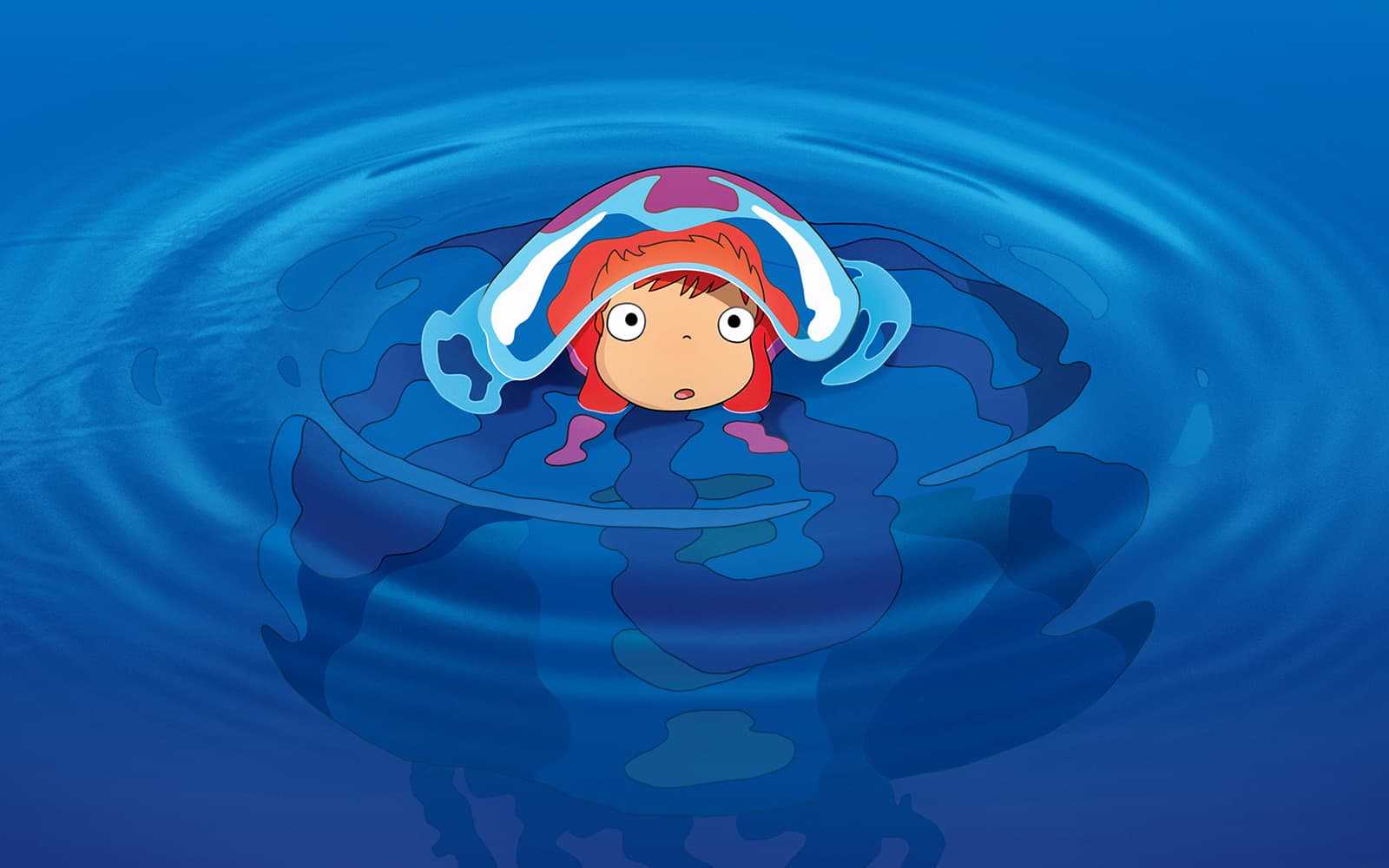
Instead of writing a review of Ponyo, the latest movie from Hayao Miyazaki, I’m just going to point you towards Steven Greydanus’ wonderful review. However, I do want to share some observations and thoughts on the film.
For starters, Ponyo is very delightful film. It doesn’t crack my top 3 — My Neighbor Totoro, Princess Mononoke, Spirited Away — but it certainly comes close. However, I have a feeling that Ponyo will be one of the more divisive films in Miyazaki’s filmography, even among the director’s fans.
For one thing, the artwork and animation is far cry from the lush, incredibly detailed work that is has always been associated with Miyazaki. That’s not to say that the artwork and animation are bad, but they are simpler and more basic, at times resembling the artwork in one of my son’s story books. It takes some getting used to, and yet I still found it enthralling — indeed, if anything, the fact that you can see crayon-like textures in the sky lends a certain “physicality” to the film.
(Even though the artwork is more basic, Miyazaki’s eye for detail is as sharp as ever. One scene in particular sticks out in my mind: a young child is attempting to drink a cup of tea and hold onto a towel at the same time. However, as she gulps down the beverage, the towel slips more and more until it falls off her shoulder. It’s such a trivial little detail but I was fascinated because who takes the time to animate a falling towel? Miyazaki does, and I love him all the more for it.)
Beyond potential issues with the artwork, though, the film’s storyline is jumbled. I’ve always appreciated the complexity and ambiguity that permeates Miyazaki’s films, especially when it comes to the nature of his heroes and villains. And while that’s still here in Ponyo — e.g., the tension that exists between Sosuke’s parents (which reminded me of the the family dynamic in The Incredibles, albeit in a much simpler form), the desperate attempts by Ponyo’s father (the film’s antagonist) to shield her from the corruption of humans — it’s wrapped up in a storyline that doesn’t always make the most sense.
But even though I was puzzled by some of the plot’s details and wanted the film to be about 10 – 15 minutes longer so as to flesh things out a bit more, I was still charmed and delighted by the sheer amount of imagination and wonder on display, be it a giant wall of ships trapped within a tsunami, prehistoric fish swimming through flooded streets, or the shots of an underwater city. Or as Greydanus puts it:
Although Ponyo seems as disjointed and free-floating as Howl’s Moving Castle, somehow the younger milieu here makes it more acceptable. Or maybe it’s just that there’s more here to latch onto emotionally.
And while Miyazaki is best known for creating outdoor scenes (the gardens and forests of My Neighbor Totoro, the wilderness in Princess Mononoke), he’s also quite skilled at urban environments. Which is to say that I found the film’s bustling port town fascinating. I found myself wishing the film would spend some time wandering through the town’s streets, shops, and docks and let us meet some of its citizens.
Oh, and I still can’t get the film’s theme song out of my head. And speaking of the soundtrack, I really wish Disney would stop using “star-studded” casts when they dub Studio Ghibli releases. While they’re certainly nice from a marketing standpoint, they’re distracting. Liam Neeson adds some gravitas to the character of Ponyo’s father, but you’re also painfully aware that you’re listening to Liam Neeson every time the character is onscreen, which takes you out of the film. And once you know that Cloris Leachman and Betty White both contributed voices, it becomes something of a game trying to figure who voiced which one of the film’s colorful senior citizens — which, again, takes you out of the film.
I don’t know how many times I’ll watch Ponyo on my own. I certainly plan on picking up the DVD in order to see if the subtitles reveal anything I missed in the dub — for example, the different versions of the movie’s theme — and I expect that my kids will really enjoy Ponyo someday. Which is something that fills me with joy and excitement: I can’t think of a better film with which to introduce a younger generation to the magic and wonder of Hayao Miyazaki.